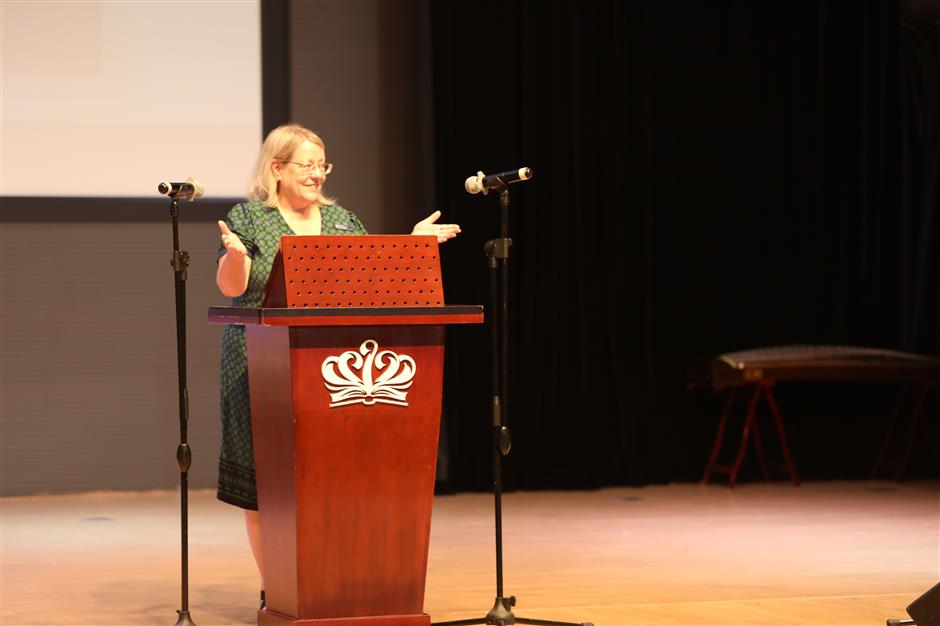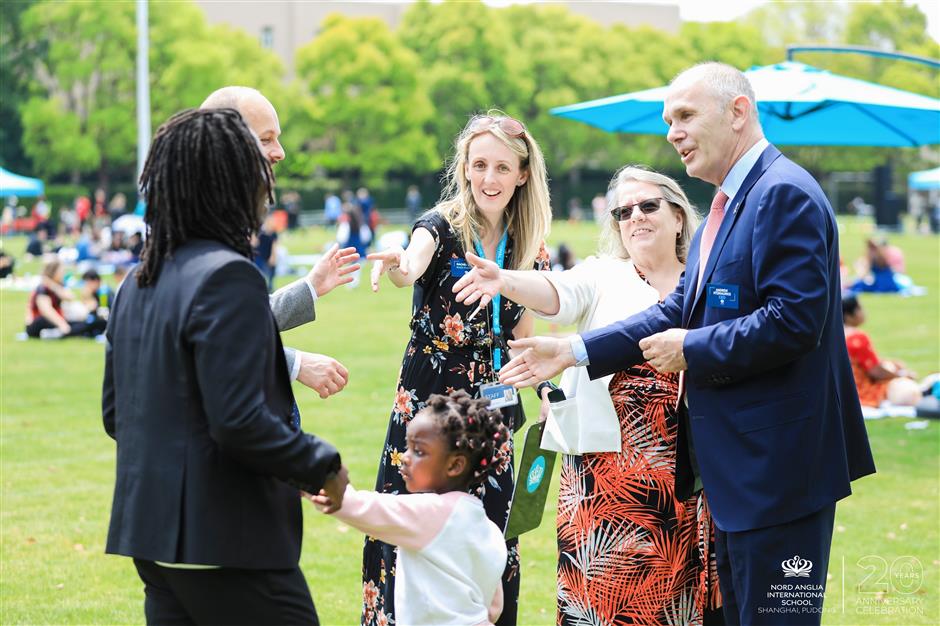Focus on artificial intelligence in classroom

Diane Vaughan, new principal of Nord Anglia International School Shanghai, Pudong
While some educators are scared of the super power of artificial intelligence technology, such as ChatGPT, so they have banned students from using it, Diane Vaughan, new principal of Nord Anglia International School Shanghai, Pudong, is quite calm.
"I know what's going to happen here," she said. "Teachers are going to talk and talk and talk about this, and our children are just going to start using it. It's as natural to them as breathing."
She imperturbably said educators and parents should really understand artificial intelligence and find out the purpose of using it, and then guide students to use it as a tool.
The career background of Vaughan might shed some light on her attitude toward technology.
Before becoming a teacher, she worked in the information technology industry as a project manager.
Later she found it exhausting as a parent with two young children and wanted to do something more meaningful.
It was natural for her to divert to education as her mother and aunts were all teachers. So she became a computer science teacher 20 years ago, and has led in managing IT teams, digital transformations, introductions of virtual learning environment and STEAM (science, technology, engineering, arts and mathematics) curriculum and infrastructure at several schools.

She started in the UK and moved to Cyprus after seven to eight years. Then she came to Southeast Asia. Before coming to China, she had been assistant head of Nord Anglia Hanoi in Vietnam.
She worked as deputy director of the Dulwich International High School in Suzhou for three years and came to Shanghai last year to return to the Nord Anglia school system. It has struck a responsive chord in her heart with "the fact that they always think about the student first and then design the educational offerings around."
Vaughan said when she entered the education area, she found educators were always talking about technology, but they didn't really know what computers were for, what they were about, and why people used them.
"My biggest thing is always 'why'," she said. "It's not because it's new and fancy and everybody's doing it, so we must do it.
"It is about the purpose. Why do we give out devices in schools? Why do we give all of our students a PC or an iPad or whatever?
"Why do we have the subject ICT (information and communication technology) or computer science? Why do we teach our students about how the Internet works? Is that really necessary? Once we've discovered that, then we can start using it properly. And it's the same thing about ChatGPT now."
She pointed out that students in the school are the first generation who "has traveled the world from their bedrooms." They'll use AI in the way that they've adapted to mobile phones.
"They're going to use it in ways that make sense to them," she said. "They're going to figure out their own 'why' and their own purpose for using artificial intelligence.
"As parents and educators, we have to teach them how to be imaginative, how to be creative and teach them how those tools actually work. Behind AI is a programmer, a human being, who knows all those three things, who is imaginative, who is creative, and who knows how it works.
"We as educators need to teach children that human ingenuity, which sparks computers won't take over, is irreplaceable."

Diane Vaughan with her students.

Diane Vaughan at the school event.

As a parent, a teacher and a principal, Vaughan gave some advice to parents and children.
She encourages parents to listen to what their children want and let them study their own passions and interests, and she also encourages children to try everything at school.
"Let them play frisbee, let them learn the guitar, let them play netball or badminton or learn to swim or whatever it might be," she said. "They need to develop their own interests. Don't force them to study business studies or economics.
"For students, go out, try everything. I know it's difficult but try to ignore what your friends are doing, ignore what your peers are doing in your class.
"You do what interests you. If you want to be in a play, be in a play. You don't have to be on the football team. And grab every opportunity that is out there."
















